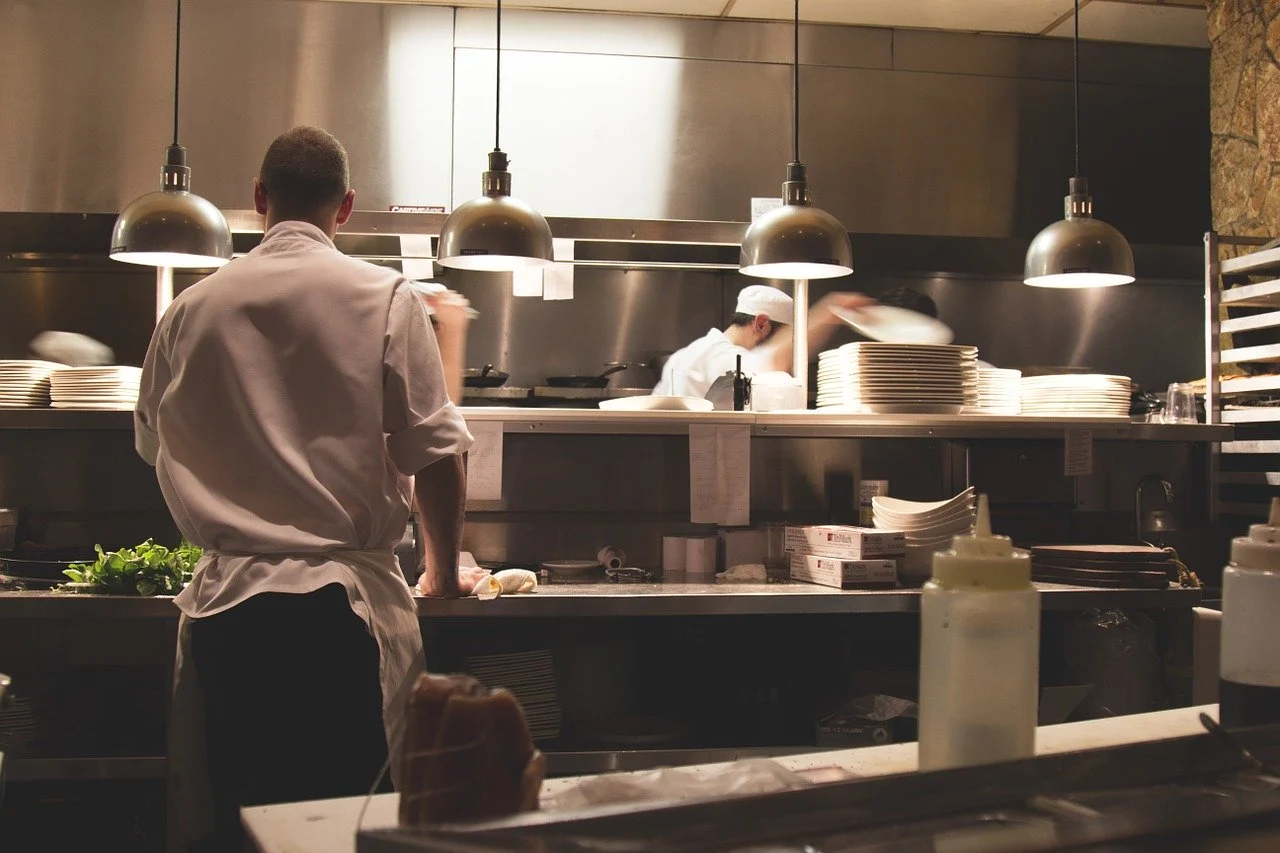
The effect of COVID-19 on workers compensation claims now and into the future
Published on July 14, 2020 by Aleisha Nair
Introduction
To date much commentary has been focused on the steps that employers and other agencies should be taking to minimise the risks of COVID-19 to their business and employees as we continue to navigate the COVID pandemic.
Among those considerations is the question of employees injured in the course of their employment as a result of COVID-19 infection.
This article has been tailored to provide answers to some of the most common questions and issues in respect of COVID-19 and workers compensation in NSW. It also provides information relevant to workers injured before and during the pandemic with non COVID-19 related injuries.
Frequently asked questions about workers compensation in the COVID-19 pandemic
The Legislative Amendments (Emergency Measures) Act 2020 was passed in NSW Parliament on 24 March 2020, in conjunction with the Workers Compensation Amendment (COVID-19) Regulation 2002, which took effect from 17 April 2020.
The purpose of the Act and Regulation was to create regulation and guideline making powers to provide a degree of flexibility for certification of an injured worker’s ability to work. The Act and Regulation amend the Workers Compensation Act 1987 to establish presumptive rights in respect of COVID-19 for workers in certain employment with an elevated risk of exposure to that disease.
Among those changes are:
- The relevant fee orders were amended to include coverage for telehealth assessments, meaning health providers could charge a different fee rate for assessments conducted via video conferencing.
- The legislation already entitled WorkCover certificates to be issued for greater periods than 28 days. Insurers have been encouraged by SIRA to accept certificates beyond 28 days, with a view to reducing the risk of workers and general practitioners potentially being exposed to coronavirus. Special reasons must be indicated on the WorkCover certificate, which, in this case, could include the COVID-19 pandemic.
- SIRA has implemented programs to support injured workers to manage recovery at work during the COVID-19 crisis. This includes the job cover placement program or recover at work assist program.
- Injured workers will continue to receive weekly compensation benefits if they are so entitled.
- Injured workers do have an obligation to return to suitable work if they have capacity to work. Workers may have some level of anxiety about returning to work during the current COVID-19 climate. All injured workers have an obligation to make reasonable attempts to return to preinjury or suitable employment, with the support of their doctor, employer and rehab provider/return to work coordinator. The Emergency Measures Act that was passed does make some adjustments for workers compensation, however does not specify any change to the employee’s obligation to return to suitable work. The Emergency Measures Act does say that weekly payments will continue if the workplace closes down because of coronavirus, but only if the employer is unable to provide suitable work. While this leaves open room for discretion on the part of insurers, an injured worker could arguably not be making reasonable attempts to return to work if they feel anxious about exposure to COVID-19. If an injured worker is going to resist returning to work for those reasons, it is important that proper enquiries are made as to the employer’s action plan for protecting against COVID-19, and reviewing whether it is still reasonable to decline suitable work in those circumstances.
Presumption in favour of certain workers who contract COVID-19
The COVID-19 Legislation Amendment (Emergency Measures – Miscellaneous) Bill 2020 (“the COVID-19 Bill 2020”) was passed by NSW Parliament on 14 May 2020. The Bill makes changes to the Workers Compensation Act 1987 and establishes presumptive rights to compensate in respect of COVID-19 for workers in certain employment with an elevated risk of exposure to that disease. This includes workers in a range of industries including but not limited to hospitality, education, emergency services, libraries, refuges, correctional centres, restaurants, clubs and hotels, courts and tribunals, cleaning and health care.
Section 19B of the COVID-19 Bill 2020 provides a presumption in favour of the worker that the disease was contracted in the course of employment, and that employment was a substantial or the main contributing factor, unless the contrary is established by the employer/insurer.
This reverses the traditional burden of proof in workers compensation claims, and places a relatively high burden on employers of essential workers to ensure they adhere to the government recommendations and guidelines to manage the virus.
Workers compensation rights and entitlements
Weekly benefits and medical treatment expenses
If an injured worker is accepted to have contracted coronavirus as a result of the injury, they would be entitled to, in the short term, weekly compensation benefits for any time off work, as well as medical treatment expenses.
Permanent impairment
It is possible that coronavirus causes permanent lung damage and breathing problems. These lung problems can include pneumonia, and in most severe cases, acute respiratory distress syndrome (ARDS). Sepsis, which is another possible complication of COVID-19, can also cause lasting harm to the lungs and other organs.
If permanent damage has developed as a result of coronavirus, injured workers may be entitled to investigate a claim for permanent impairment.
Respiratory dysfunction is an existing class of permanent impairment recognised for lump sum claims. They already arise in cases of exposure to dusts, and can also arise as a result of chemical induced asthma/inflammatory conditions.
Permanent respiratory damage due to COVID-19 would be assessed on a similar basis.
In order for an injury to be regarded as permanent, it must have reached “maximum medical improvement”. An independent doctor must certify that the injury is not likely to change substantially over the next 12 months. It is not clear at present whether patients’ lungs recover following COVID-19, and if so, how long the recovery may take.
In due course, it will become clear whether injured workers can make a claim for permanent impairment. The AMA 5 guidelines must be applied in those circumstances.
According to Chapter 5 of the AMA 5 and Chapter 8 of the SIRA Guidelines 4th ed, permanent respiratory impairment may exist if there are changes to the organ function which affect the worker’s activities of daily living. Symptoms may include, for example, dyspnea, wheezing, coughing, and thoracic cage abnormalities.
Assessing permanent impairment
In assessing impairment arising from COVID-19, the assessor will take into consideration symptoms and signs of respiratory disease, and also objective clinical studies such as radiographs, imaging studies, and pulmonary function tests, the last of which is considered the most useful in assessing functional changes.
The assessor is also required to deduct any impairment that may have arisen from non-work related conditions such as pre-existing conditions and lifestyle activities such as smoking.
In order for an injured worker to receive a lump sum payment for permanent impairment, they must be found to have at least an 11% whole person impairment. That is a high threshold for lung injuries, however it may be possible in severe circumstances.
If an injured worker is found to have at least a 15% impairment, they may be entitled to sue their employer in negligence. Careful consideration should be given to the circumstances of contracting the injury, as well as processes implemented by the employer to protect workers from the virus. Arguably, all employees have had access to Safe Work Australia and other government organisations’ advice to manage the virus, and if injured workers contract the virus as a result of a failure to adhere to these guidelines, one could argue that the injury was caused by the negligence of the employer.
Again, each case will have to be assessed on its merits, and it is important that early legal advice is obtained before pursuing a claim.
Death benefits
Finally, if an injured worker dies as a result of contracting COVID-19, a claim for death benefits is payable to the deceased’s estate, or to their surviving dependents. In certain circumstances, dependent children of the deceased may also be eligible to receive weekly benefits for a period of time.
Advice
The rules, regulations and entitlements arising from the COVID-19 pandemic are rapidly changing, and may not be in place indefinitely.
It is important that injured workers receive legal advice as early as possible to ensure they can act upon their potential entitlements. If you have questions or queries in relation to your workers compensation rights and entitlements arising from the COVID-19 pandemic, we would invite you to contact Carroll & O’Dea Lawyers.
You can read some other articles written by Carroll & O’Dea Lawyers in relation to the pandemic below –
